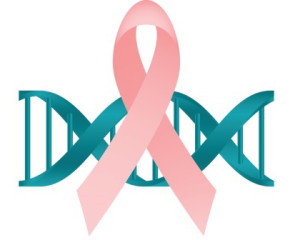 A couple of months ago I admittedly had no idea what genetic counseling was. I was familiar with genetics, and a person once told me I needed counseling, but I had no clue what a genetic counselor did. Genetic counselors are people with an advanced knowledge of genetics who are able to provide education on disorders like Down syndrome, Sickle cell anemia and hereditary breast and ovarian cancer. I have learned now that a genetic counselor can be a health educator, social worker, genealogist and your best friend when it comes to your health.
A couple of months ago I admittedly had no idea what genetic counseling was. I was familiar with genetics, and a person once told me I needed counseling, but I had no clue what a genetic counselor did. Genetic counselors are people with an advanced knowledge of genetics who are able to provide education on disorders like Down syndrome, Sickle cell anemia and hereditary breast and ovarian cancer. I have learned now that a genetic counselor can be a health educator, social worker, genealogist and your best friend when it comes to your health.
Increased awareness about health conditions is never a bad thing, but without knowledge, it can lead to fountains of misinformation. Panic may cause women to ask for genetic testing when they can avoid the blood draw altogether.
| Angelina Jolie decided to have a double mastectomy due to having an increased risk for breast cancer because of a mutated BRCA1 gene. This news may have prompted many young women to run to their doctors and ask questions about their own risk for cancer. Angelina's condition is called hereditary breast and ovarian cancer syndrome and accounts for 5–10% of all breast cancer cases. Discussing your family’s history can help you determine your risk. So before running to your doctor for genetic testing, consider speaking to a genetic counselor. |
|
What is a Genetic Counselor?
Genetic counselors are health professionals with master's and specialized degrees in genetics and counseling. They work in a variety of patient settings and come from diverse educational backgrounds including biology, psychology and public health. Genetic counselors work with people to collect family history to identify genetic predispositions to health conditions and then order genetic testing when appropriate. During a genetic counseling session, the counselor will discuss your personal and family history and then provide recommendations to manage any conditions that may have been discovered.
In addition to helping formulate a treatment plan, a counselor can discuss the emotional implications of the results and find resources for you and your family. Genetic counselors work as part of the health care team — helping patients manage their conditions alongside physicians.
Here are three things you should know about genetic counseling:
1. Genetic counseling sessions are interactive! They are more like conversations rather than lectures. Questions, comments and concerns are welcomed and help make you a part of your healthcare team.
2. Genetic counselors are not mind readers. Besides knowing your personal health history, learning as much as you can about you family history before a session can help make the discussion even more productive. Make a list of conditions that may run on either side of your family.
3. How much will it cost? Coverage for genetic counseling varies by state and by health insurance provider. Call your provider for your coverage details.
Do I need a counselor?
There are many online tools that can help you assess your risk of breast and ovarian cancer and help you determine whether you need to speak to a genetic counselor. www.BreastCancergenescreen.org is a web-based tool that uses personal and family history to quickly identify who would benefit from genetic counseling concerning the BRCA genes.
The National Society of Genetic Counselors (NSGC) can help you find a genetic counselor near you. More information on genetic counseling can be found here: http://www.geneticalliance.org/counseling.guide.
This is not a paid advertisement for genetic counseling, but since being introduced to the profession I have realized its value. Acting out of fear can lead to negative health outcomes. Seeking education from a genetic counselor can help raise awareness about heredity breast and ovarian cancer. It can also save time and money and help you avoid an unnecessary needle prick.
Editor’s Note: It is estimated that 5–10% of breast cancer cases result from inherited mutations, including those in the breast cancer susceptibility genes BRCA1 and BRCA2. These mutations are present in far less than 1% of the general population but occur more often in certain ethnic groups such as those of Ashkenazi (Eastern European) Jewish descent. Women with BRCA1 mutations are estimated to have a 44–78% risk for developing breast cancer by 70 years of age; the corresponding risk for BRCA2 mutations is 31–56%.1
1. American Cancer Society. Breast Cancer Facts & Figures 2011- 2012. Available at: http://www.cancer.org/acs/groups/content/@epidemiologysurveilance/documents/document/acspc-030975.pdf



